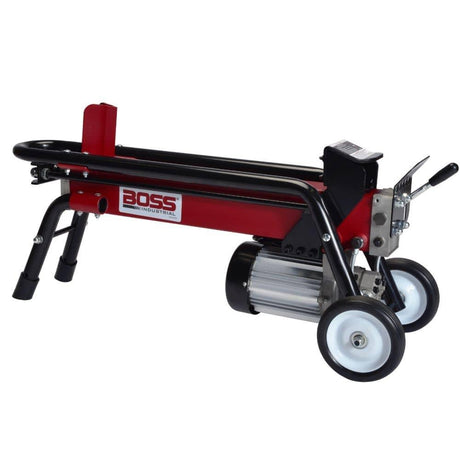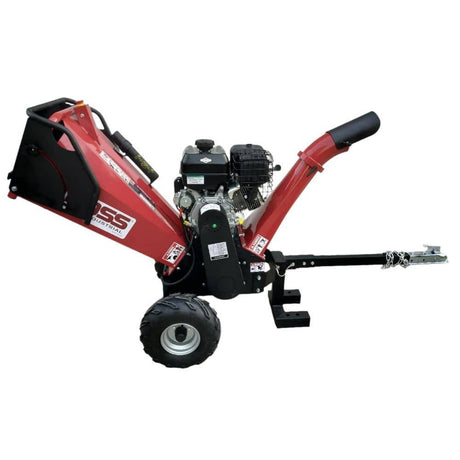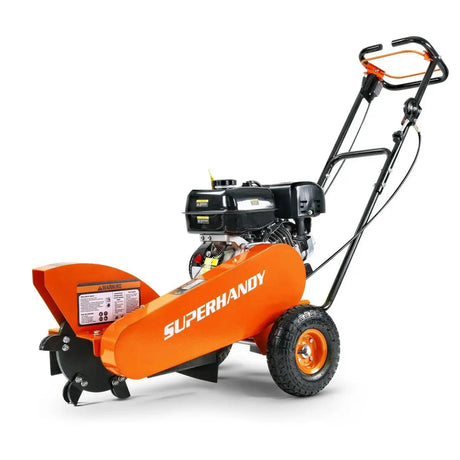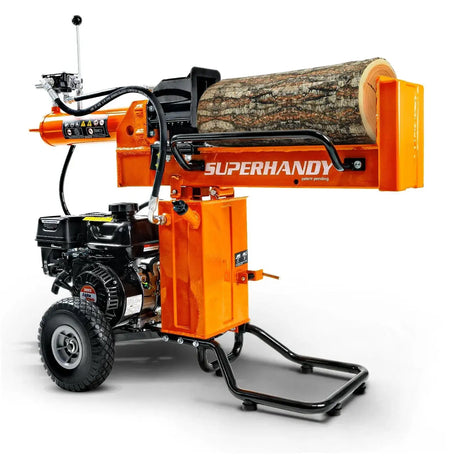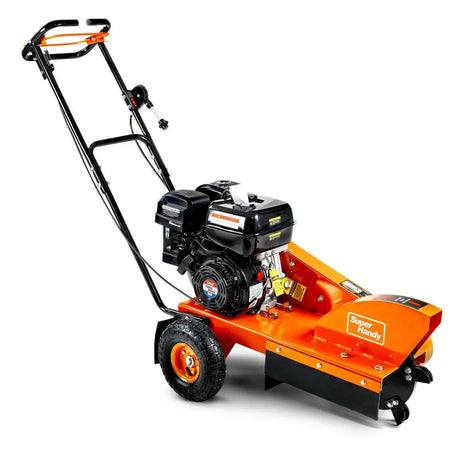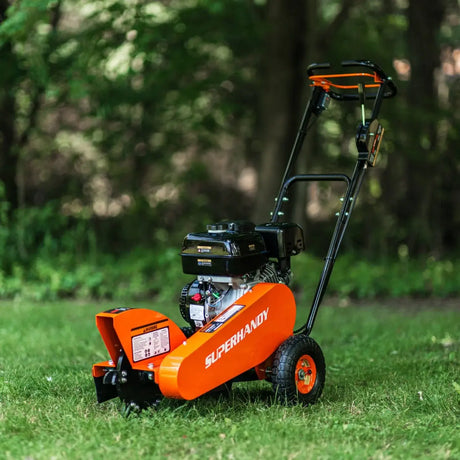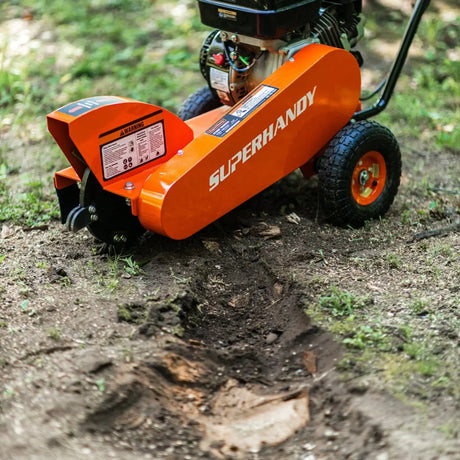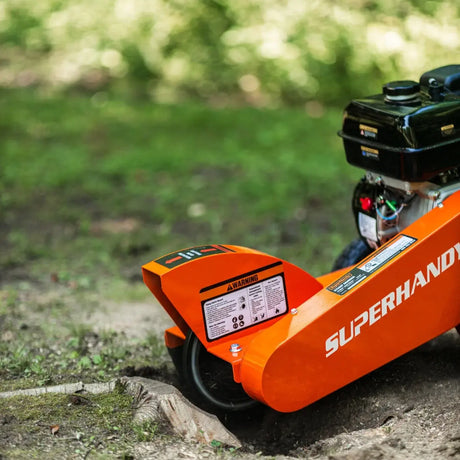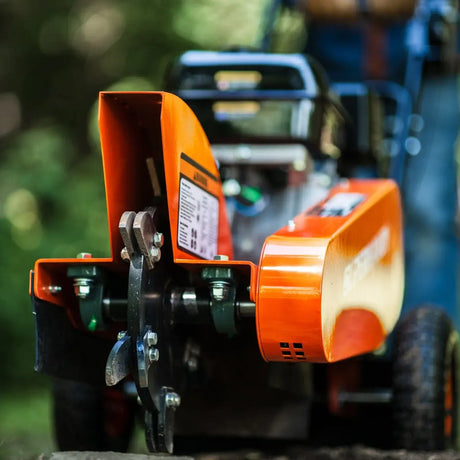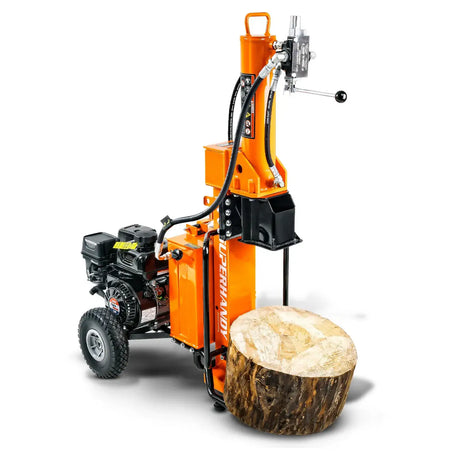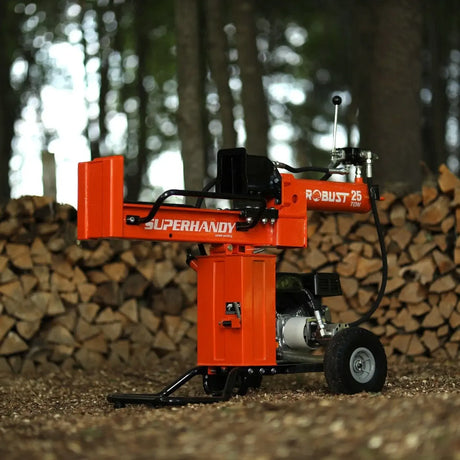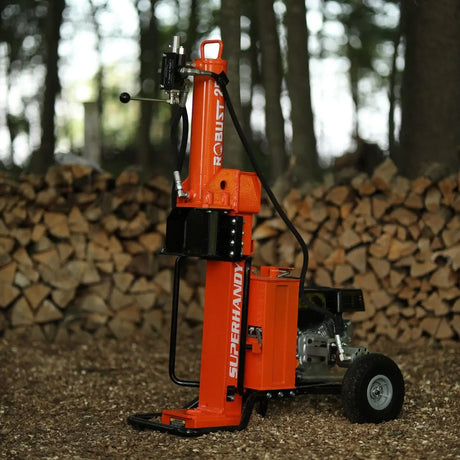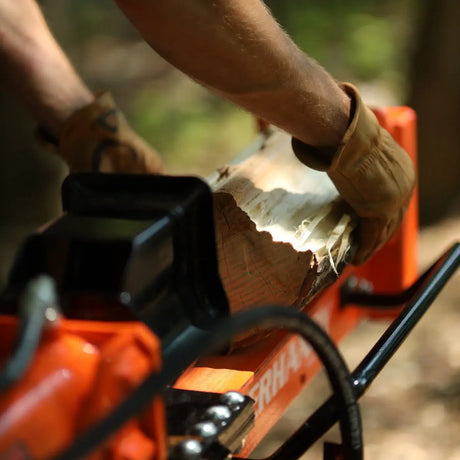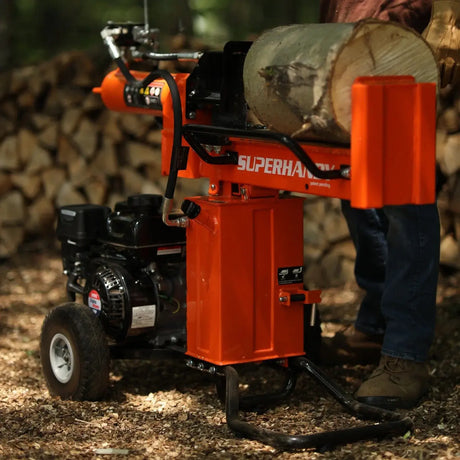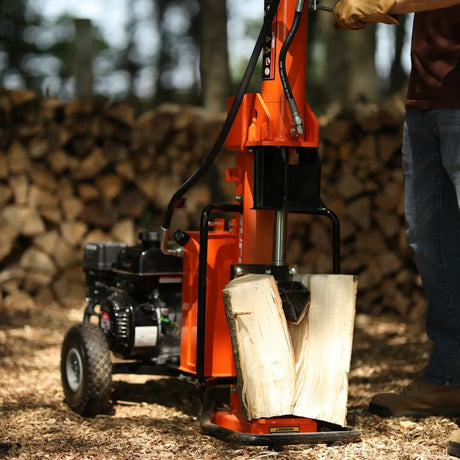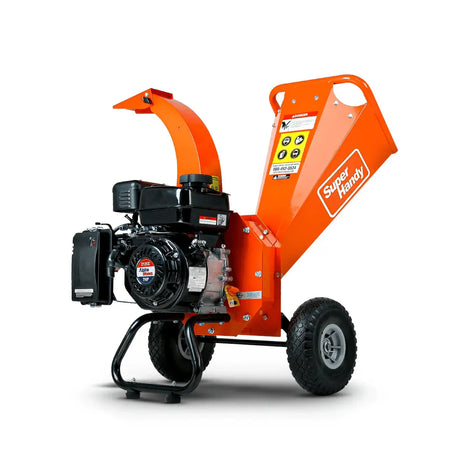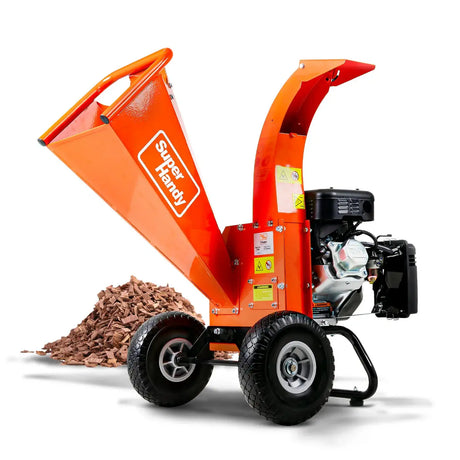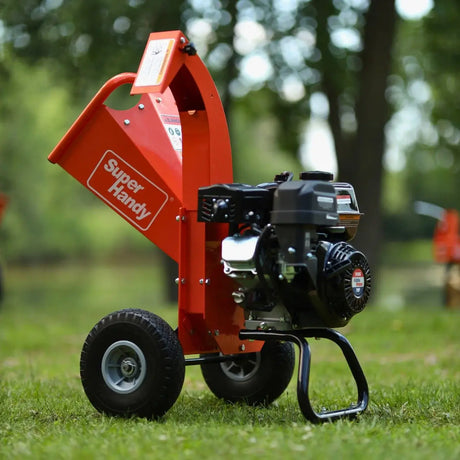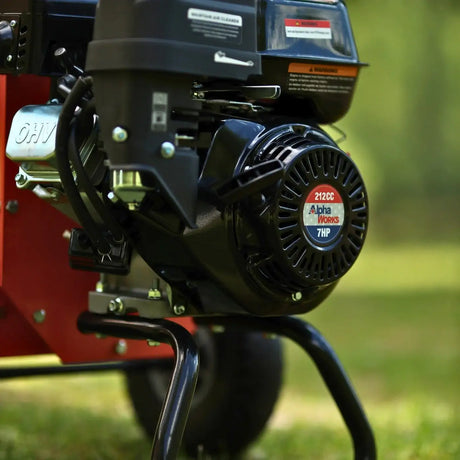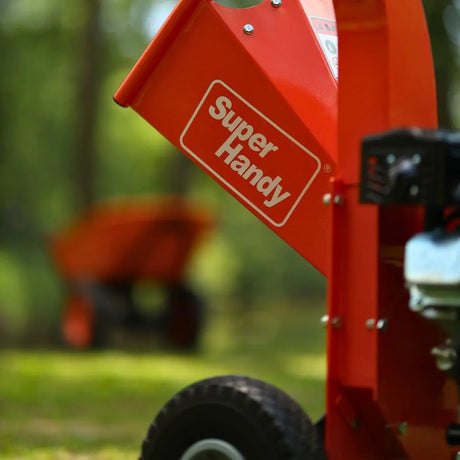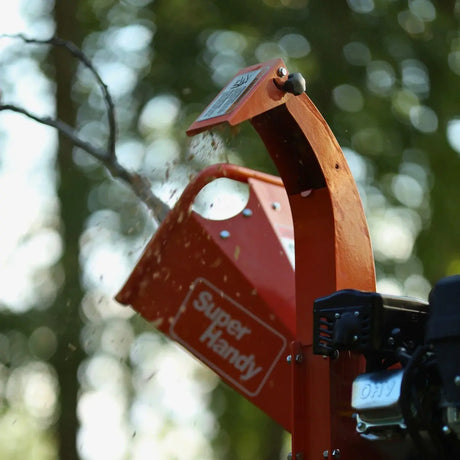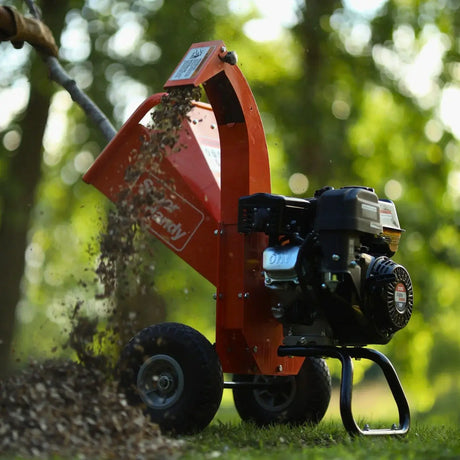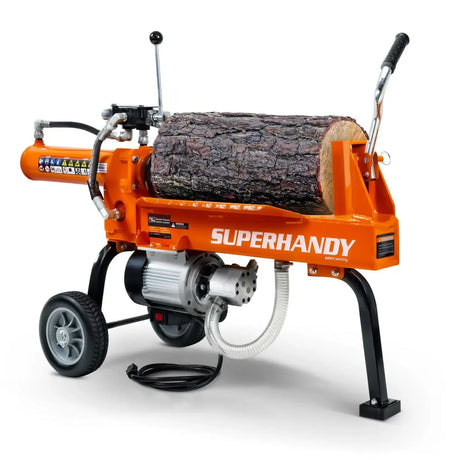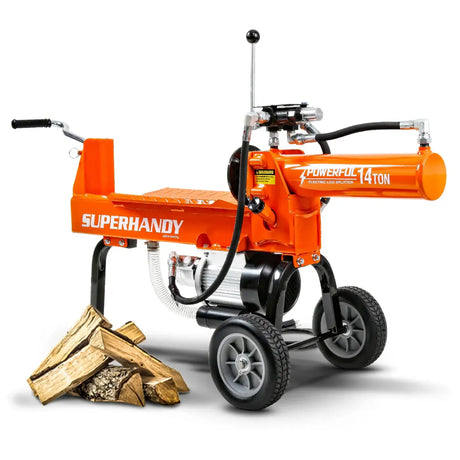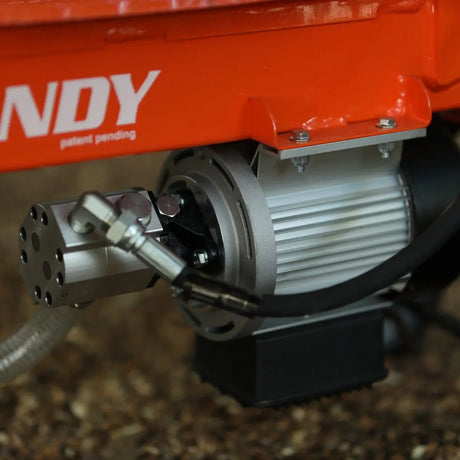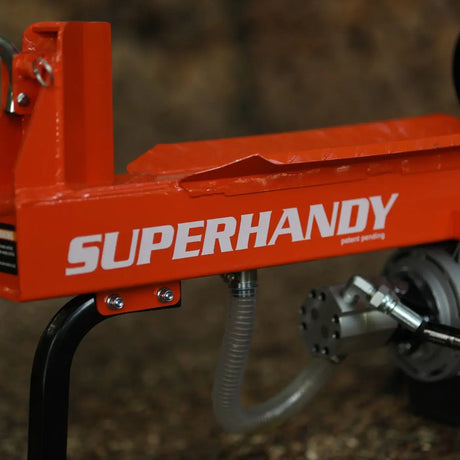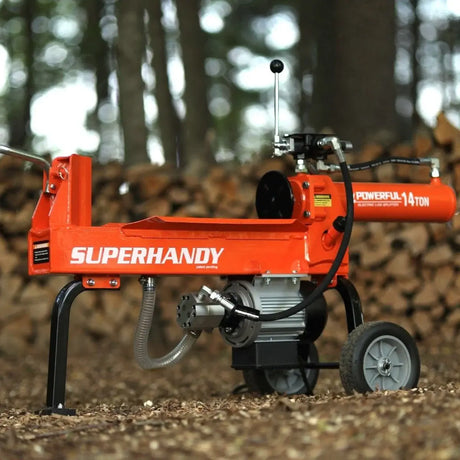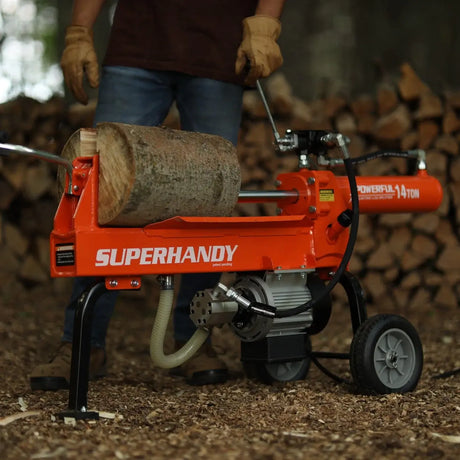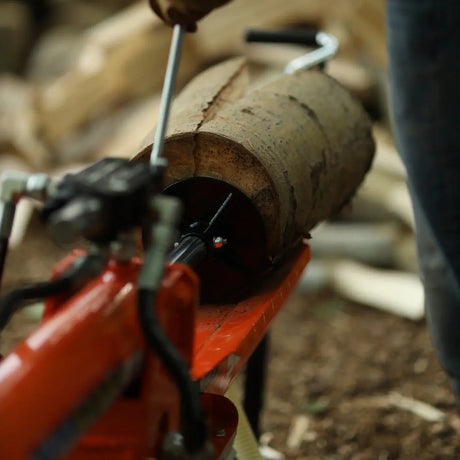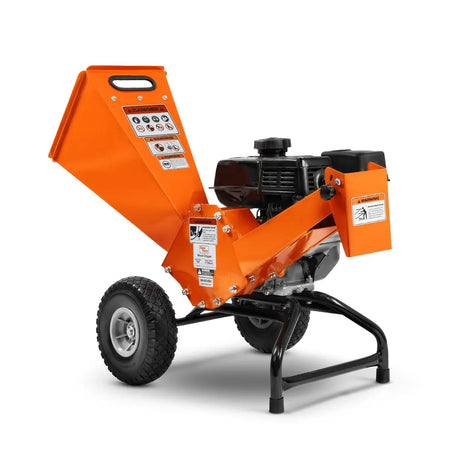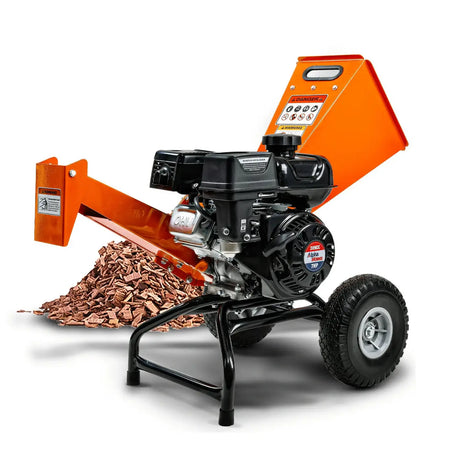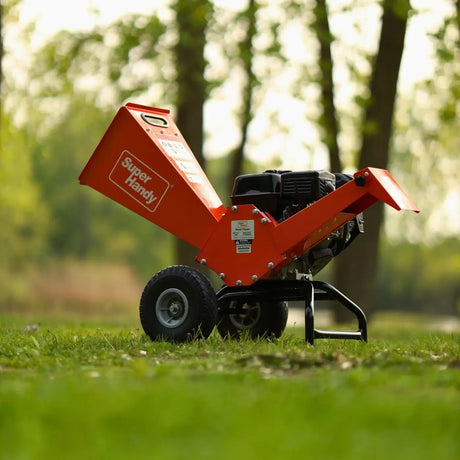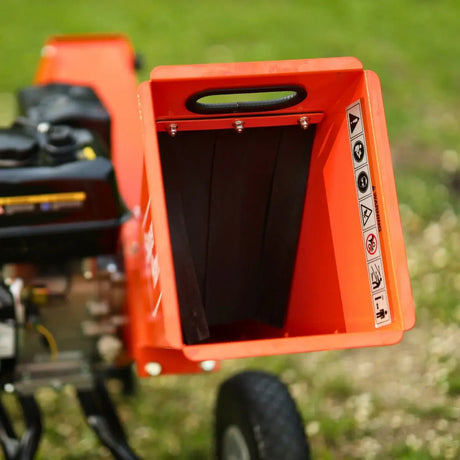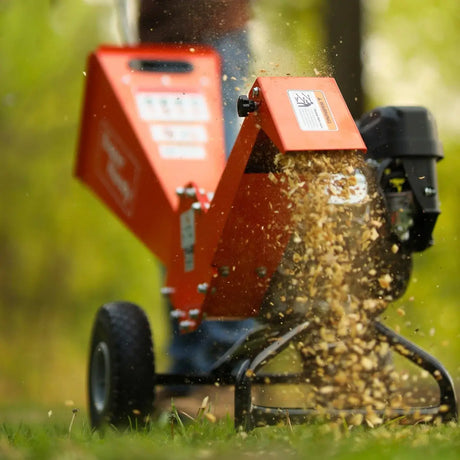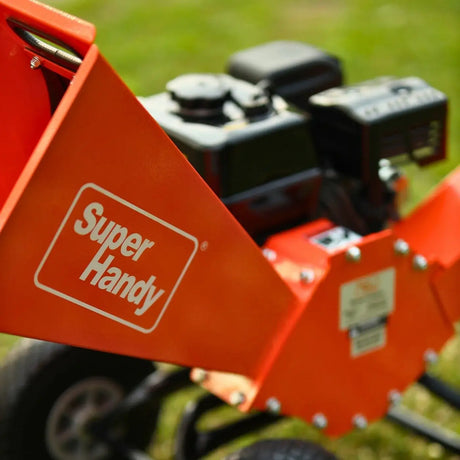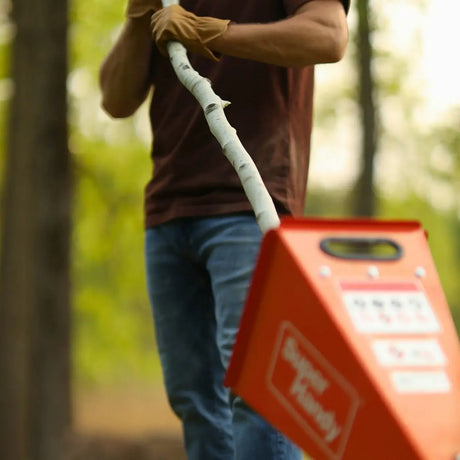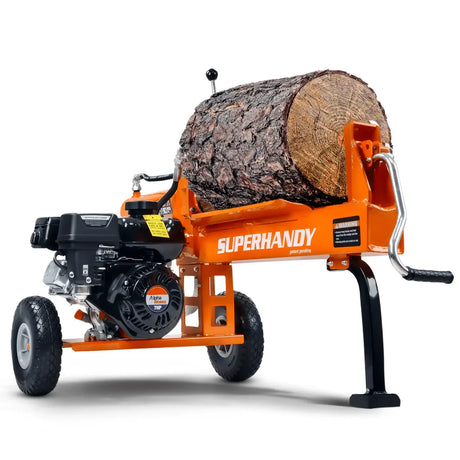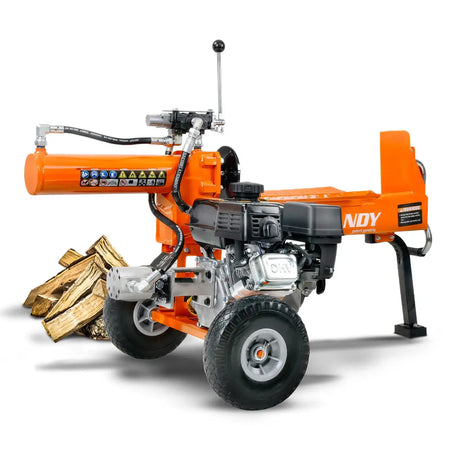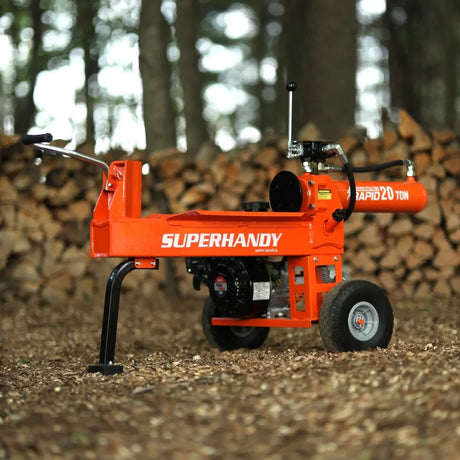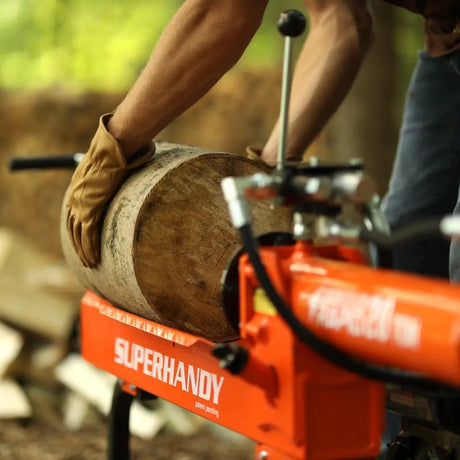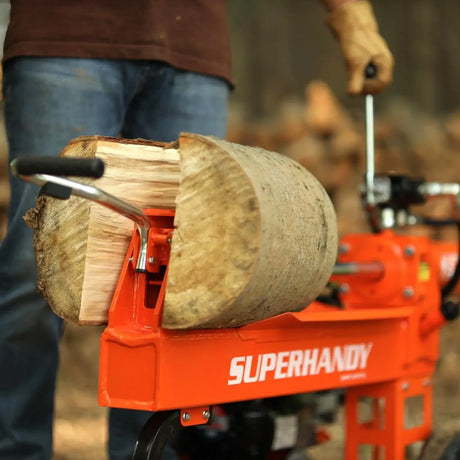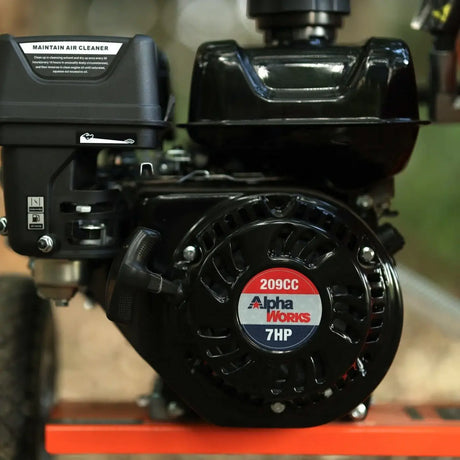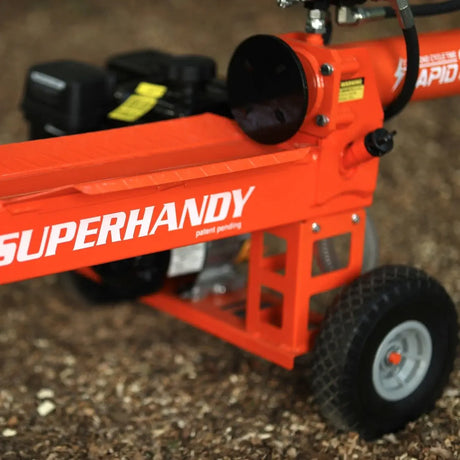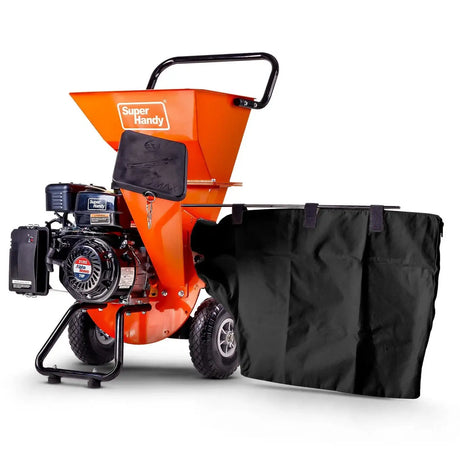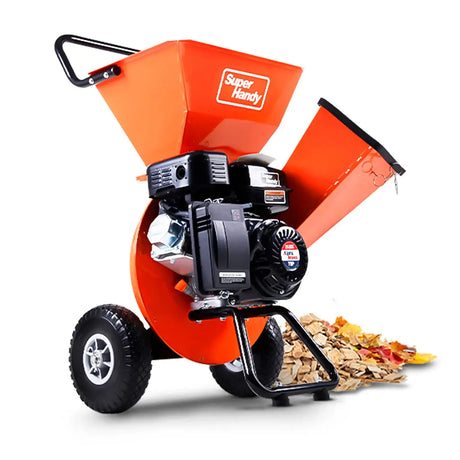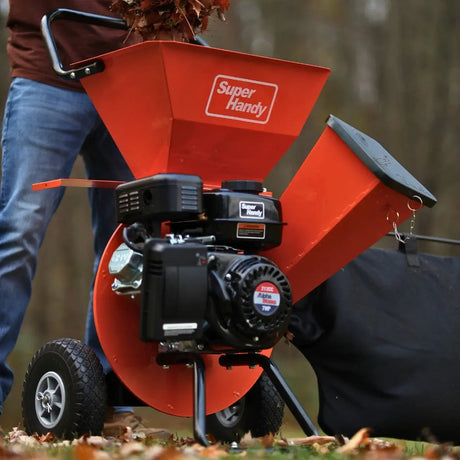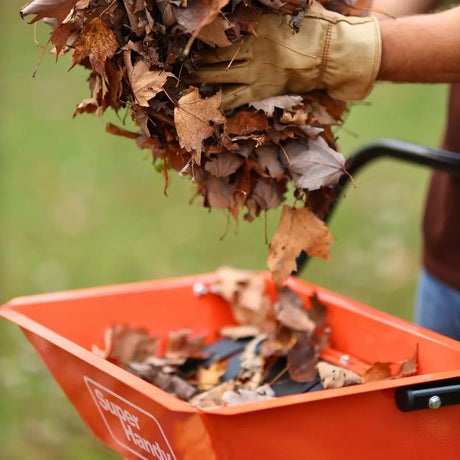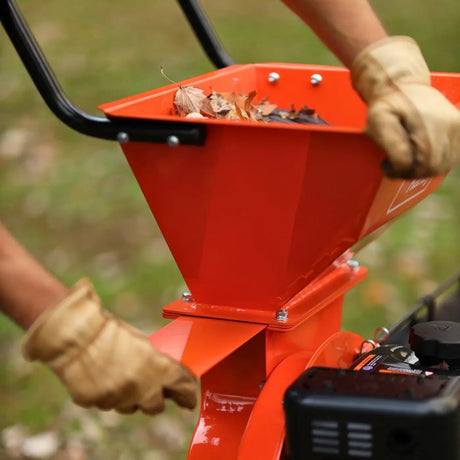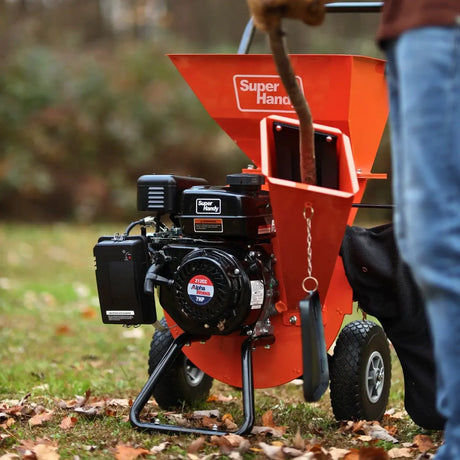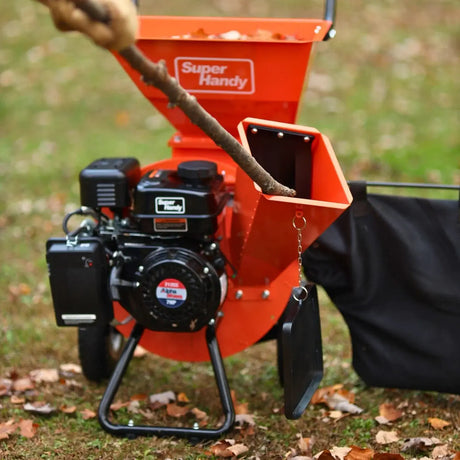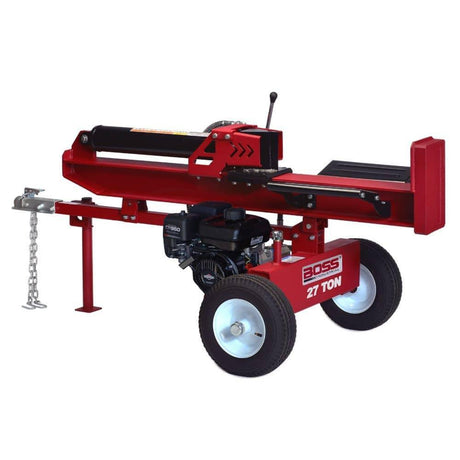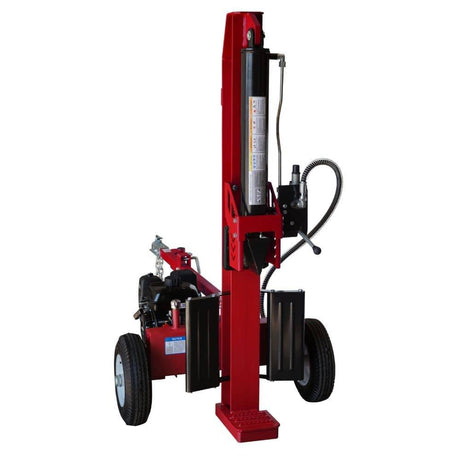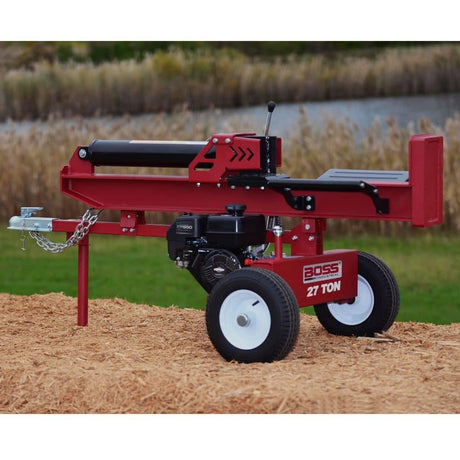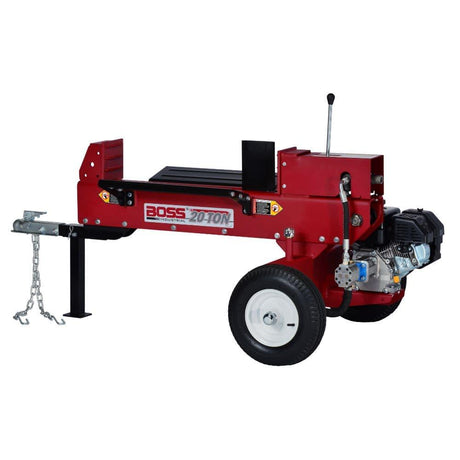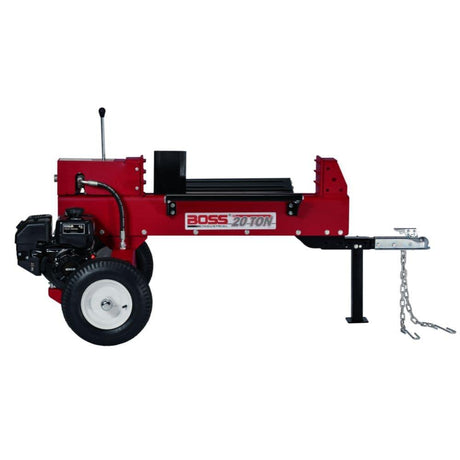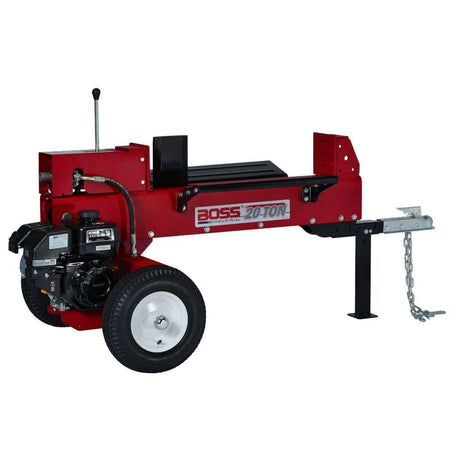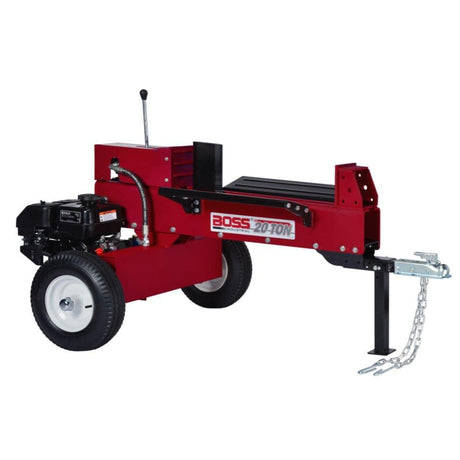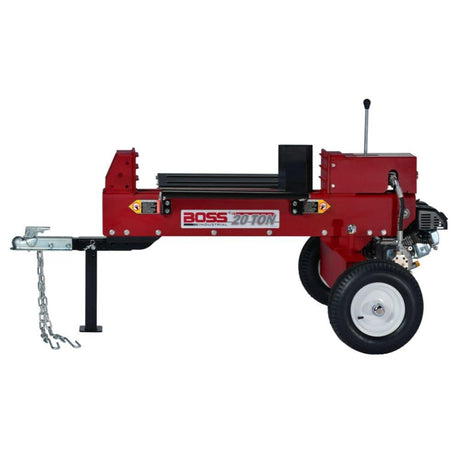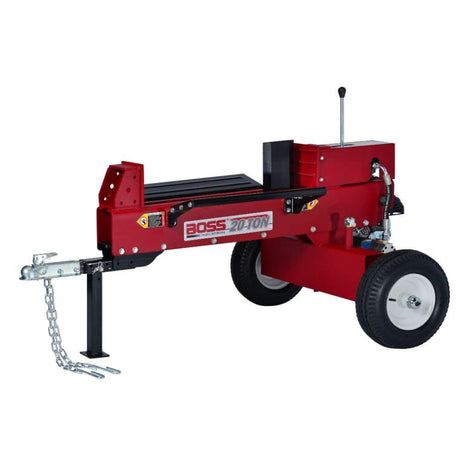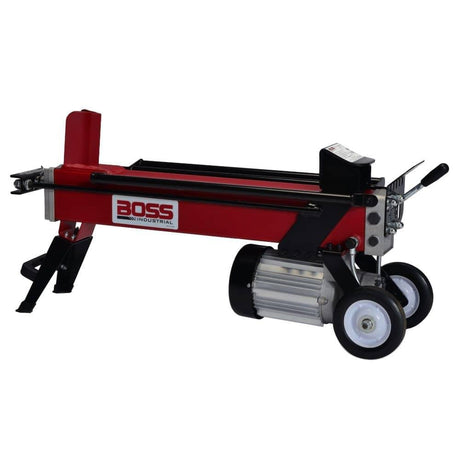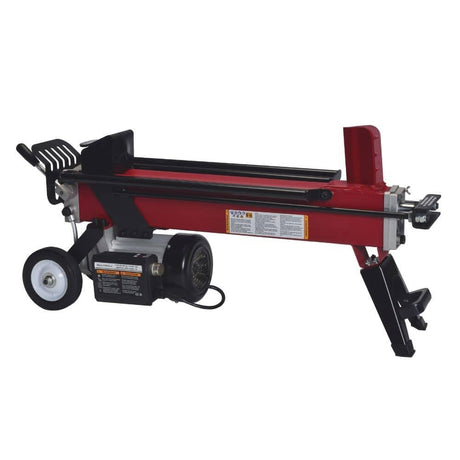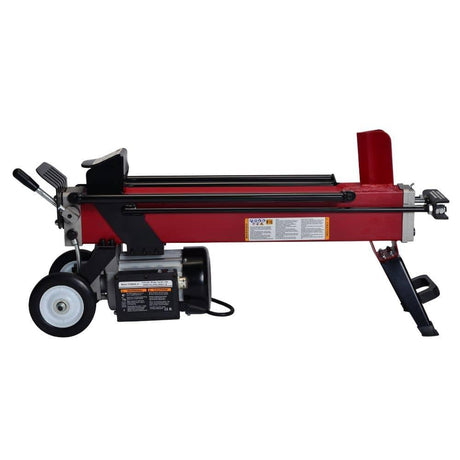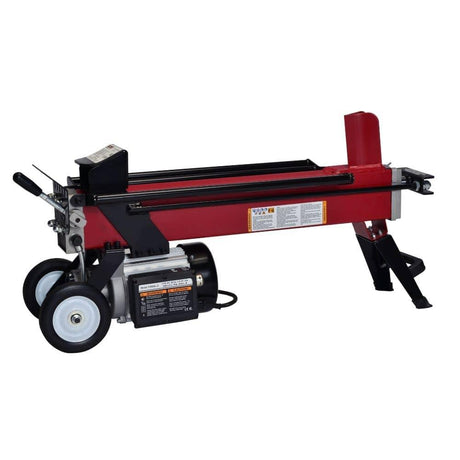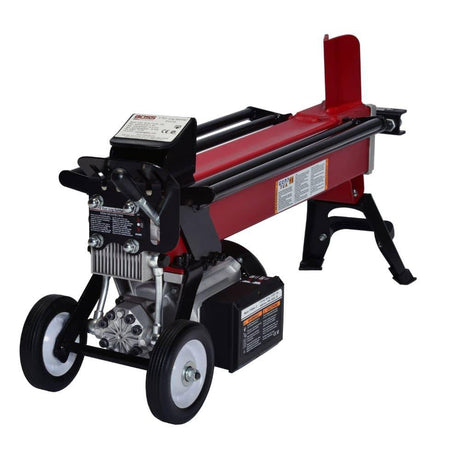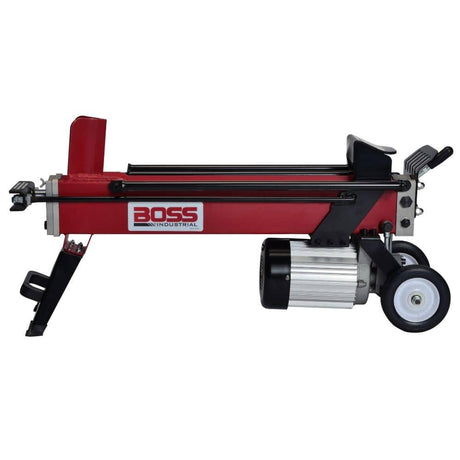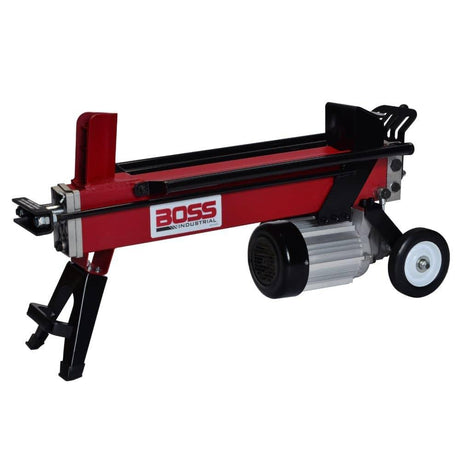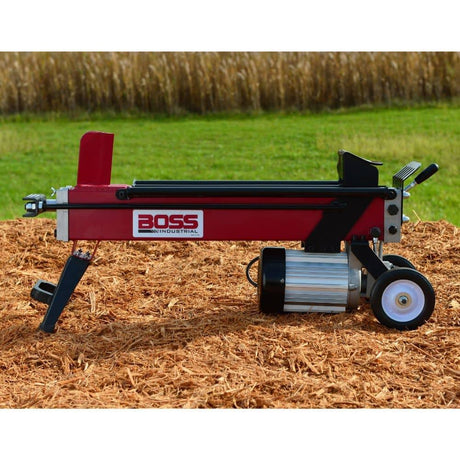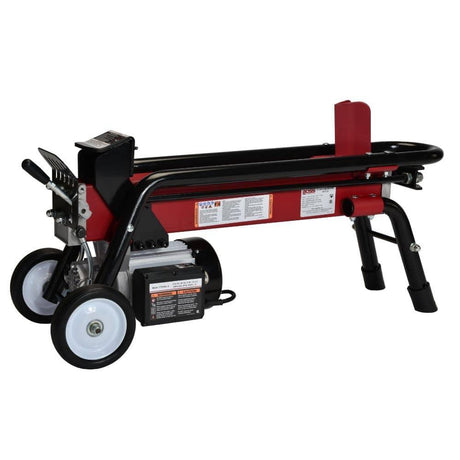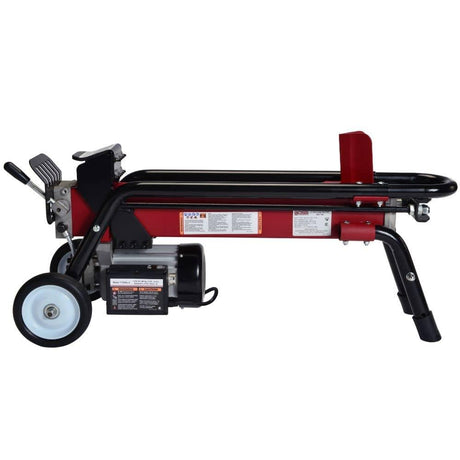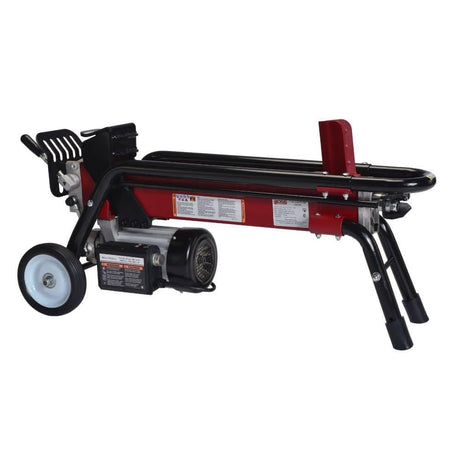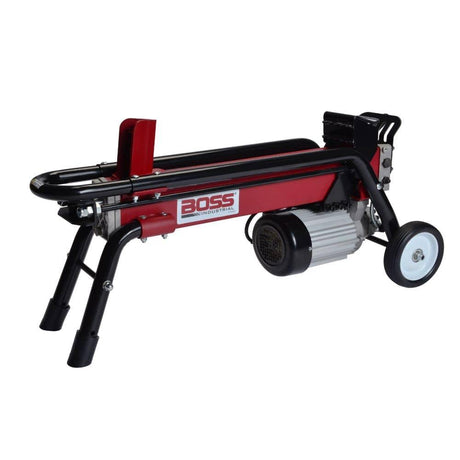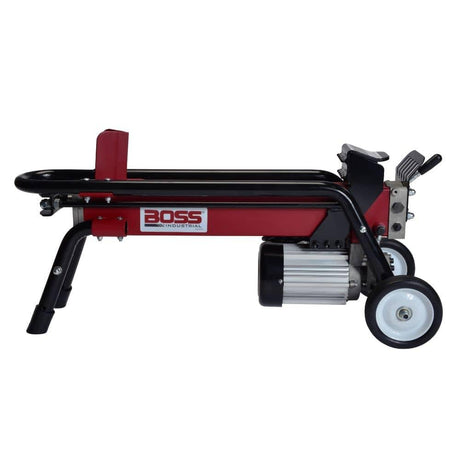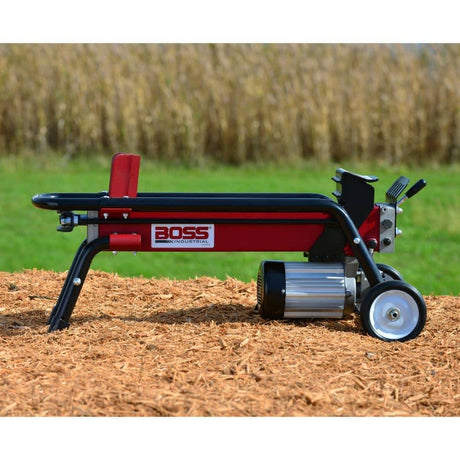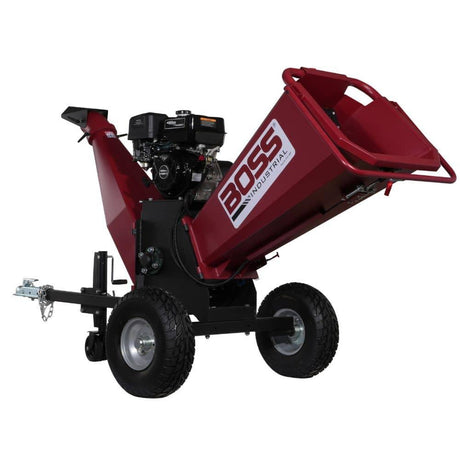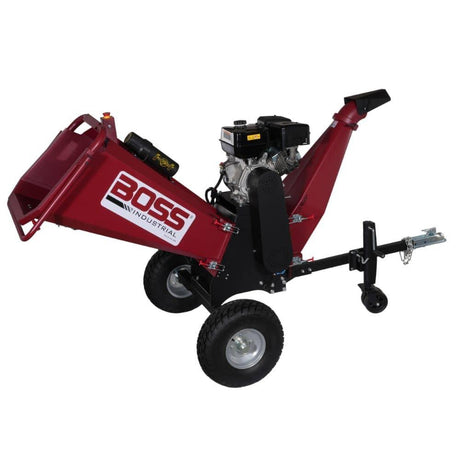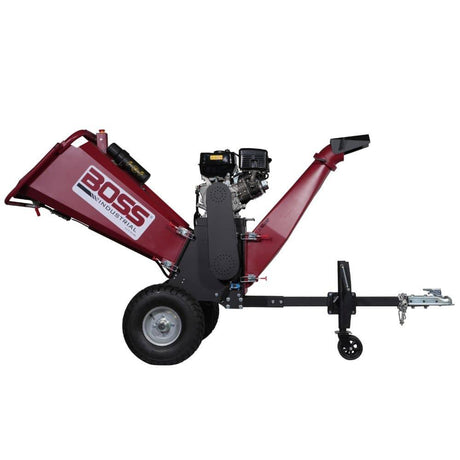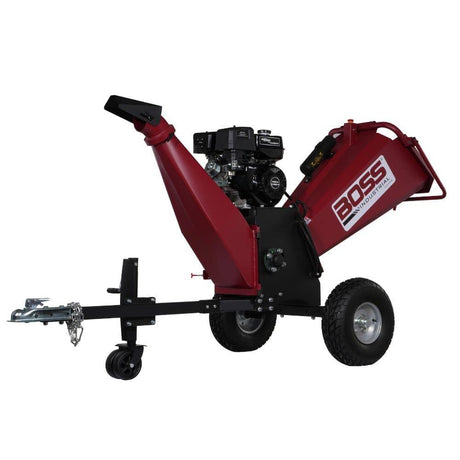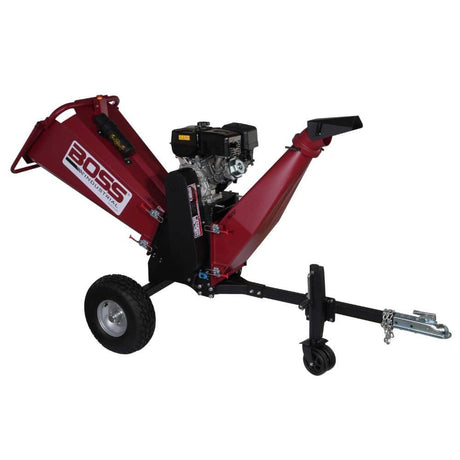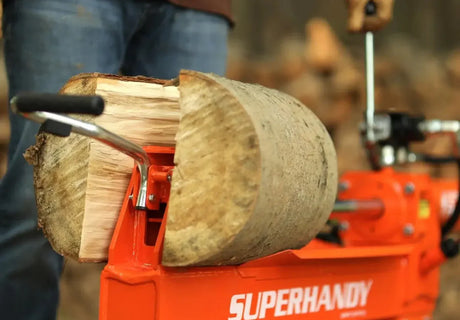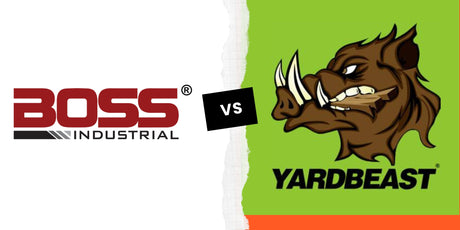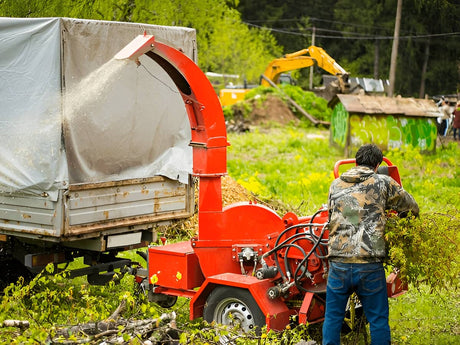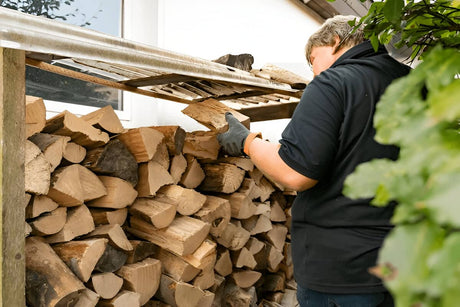If you live on a large property, yard waste isn't just a seasonal task-it's a constant job. Between trimming small trees, clearing tree limbs, and managing storm damage, the volume of woody material adds up fast. That's why more landowners are turning to wood chippers. From making wood chips for garden beds to reducing green waste volume and improving soil health, a chipper becomes more than a tool-it's a long-term solution.
For those managing more trees, PTO wood chippers or gas powered units deliver serious chipping capacity. They turn large branches, small brush, and organic waste into useful fine mulch, helping you avoid hauling, reduce burning, and make better use of your land.
Key Takeaways
- Wood chippers simplify rural yard waste management and reduce the need for burning or hauling.
- PTO wood chippers and gas powered models provide more power for processing large branches, small branches, and tree limbs.
- From mulching garden beds to erosion control, wood chippers support soil health, green waste reduction, and land improvement projects.

Efficient Yard Waste Management
Reducing Waste Volume
Rural properties generate a huge amount of yard debris-from tree limbs, palm fronds, and small trees, to storm damage and dense undergrowth. Without the right equipment, cleanup becomes overwhelming.
For guidance on selecting the appropriate machine, refer to our Wood Chipper Sizes Explained: What Size Do You Really Need guide.
That's where wood chippers come in. These powerful machines turn small twigs, larger branches, and even dense woody material into manageable wood chips. This drastically reduces yard waste volume and frees up valuable storage space.
- For thick piles and big branches, a commercial wood chipper or heavy duty gas powered model is the better fit.
- Residential models are great for day-to-day cleanup and seasonal maintenance on smaller zones.
Either way, the cutting mechanism helps you stay ahead of fast-growing trees and recurring yard debris.
On-Site Processing
Using a wood chipper directly where branches fall saves hours. No need to haul green waste across the property or arrange for off-site disposal.
- PTO wood chippers with a reliable PTO shaft attach right to your tractor.
- This makes it easy to reach remote areas and process branches and organic waste as you go.
You chip it once, leave nothing behind, and create usable fine mulch or compost pile material without leaving your land. It's efficient, practical, and saves you a trip every time.

Enhancing Soil Health and Landscaping
Mulching Flower Beds and Garden Beds
Wood chippers do more than just clean up debris-they help build healthier soil. The fresh wood chips they produce make excellent fine mulch for raised beds, flower beds, and garden beds. Learn more about how Wood Chippers Help Reduce Yard Waste: Real Data.
Spread a thick layer of uniform chips to:
- Retain soil moisture during dry spells
- Suppress weeds naturally
- Protect the soil surface from heat and erosion
The sharp blades and advanced cutting mechanism in today's cutting systems ensure the chips look clean, consistent, and professional-perfect for both function and aesthetics.
Bonus tip: Apply mulch around natural pathways and tree bases to reduce soil compaction and improve drainage.
Composting Benefits
Chipped woody material breaks down faster than raw branches. That's why adding wood chips and small brush to your compost pile is a smart move.
- It improves airflow and accelerates decomposition of green waste
- Supports organic farming and sustainable practices
- Turns yard waste into usable, nutrient-rich organic waste
Over time, this boosts soil health, especially in active garden beds or areas with poor drainage. It's one of the simplest ways to close the loop on your property-reduce waste, recycle nutrients, and save money on soil amendments.

Fire Risk Reduction
Clearing Brush Piles
If you live in a rural area with more trees, you know fire risk is no joke-especially in dry seasons. Brush piles, tree limbs, small trees, and yard debris can become fuel in a wildfire.
A wood chipper helps reduce that risk by:
- Breaking down trimmed branches and woody material before it piles up
- Converting palm fronds, small brush, and larger branches into manageable wood chips
- Avoiding open burning, which often creates more danger than it solves
Instead of letting that debris sit—or risking fire—use your chipper to turn it into value-added products like fine mulch. For maintenance tips, consult our Wood Chipper Maintenance: The Ultimate Guide.
Creating Safe Zones
Defensible space matters. By clearing low-hanging limbs, woody debris, and clutter near buildings, you reduce ignition risks and improve emergency access.
Use your wood chipper to create a buffer zone around:
- Your house
- Barns, sheds, or outbuildings
- Fencelines, driveways, and wooded trails
In high-risk regions, this kind of proactive yard waste management makes a huge difference. Many rural property owners rely on PTO wood chippers or heavy duty gas powered models to keep large areas safe and clear.

Cost Savings and Efficiency
Avoiding Professional Services
Landscaping companies, hauling crews, and debris removal services often charge steep rates-especially for remote or large properties. If you're frequently clearing yard debris, tree limbs, or green waste, those costs add up fast.
Owning the right wood chipper gives you full control. To choose between gas and electric models, read our comparison: Electric vs Gas Wood Chipper: Which One is Better for You.
- A residential model from trusted names like Woodland Mills can tackle regular cleanup without needing a commercial wood chipper
- For larger properties with more trees, a PTO wood chipper or gas powered model adds serious value-especially during storm cleanup or seasonal trimming
- After just a few heavy sessions, most machines pay for themselves
It's an investment that cuts expenses-and boosts productivity.
Time Efficiency
Using a wood chipper doesn't just save money-it saves your time.
- Skip the trailer loads, fuel costs, and back-and-forth trips to the dump
- Process branches, small twigs, and woody material on-site, where they fall
- Chip tree limbs, small branches, or larger branches in one pass, with less physical effort
PTO chippers, gas powered wood chippers, and heavy duty units are built for continuous, high-volume use. Match the model to your yard size, power source, and chipping capacity for best results.
Choose a chipper that fits your land, and it becomes a game changer in day-to-day maintenance. Fewer piles. More productivity.

Versatile Applications
Erosion Control
Wood chippers aren't just for cleanup-they're a powerful tool for land management.
- Spreading chipped material across slopes or disturbed areas creates a natural barrier against runoff
- Wood chips hold moisture, improve soil health, and prevent soil from washing out after storms
- Great for rural natural pathways, driveways, or trails that get muddy or uneven
Use fine mulch from small branches and woody debris to stabilize loose ground or backfill around raised beds and fencing. It's a simple, low-cost method with high impact-especially in rural areas with large elevation shifts or sandy soil.
Biomass Production
If you're thinking bigger-biomass is where wood chippers shine.
- A commercial wood chipper or PTO wood chipper attached to a tractor with a PTO shaft can process a steady stream of organic waste
- The result? Value added products like wood fuel pellets, compost feed, or heat-efficient biomass for burners
Organic farming operations use chipped green waste to enrich compost systems. Others convert woody material into biomass for renewable energy or backup heat.
Even if you're just working your own land, turning tree limbs, palm fronds, and small trees into fuel gives you more control-and more ways to save money.

Choosing the Right Wood Chipper for Rural Properties
Assessing Chipping Capacity
Not all wood chippers are built the same-your choice should reflect the wood type, yard size, and volume of yard waste you deal with.
- For small branches, small twigs, or light yard debris, residential models from trusted brands like Woodland Mills are more than enough
- For larger branches, big branches, or tree limbs up to 6-8 inches in maximum diameter, go for commercial wood chippers or heavy duty gas powered models
- Need to process small trees or lots of woody material after storms? Look for higher chipping capacity and robust cutting systems with sharp blades that maintain performance
Remember: A chipper's rated chipping capacity tells you what it can handle safely. Go a little above your average load-not below it.

Considering Power Source Options
Your power source matters just as much as size. Choosing the right equipment depends on where and how often you plan to use it.
- Gas powered wood chippers are versatile and reliable for remote jobs with no power lines in sight
- PTO wood chippers are excellent for large farms or rural properties-hook them directly to your tractor's PTO shaft and chip wherever you need
- Electric models are great for light-duty use near your house, barn, or shed-quiet, low-maintenance, and emission-free
- For large acreage, frequent use, or lots of green waste, gas powered or PTO chippers offer more power, better cutting mechanism options, and rugged durability
Pro tip: Check the cutting mechanism, blade access, and discharge chute placement before buying. These small details affect the chipper's performance in the long run.

Maintenance and Safety Tips
Regular Maintenance Tasks
Routine upkeep keeps your wood chipper running efficiently and extends its lifespan. For troubleshooting common issues, refer to our Essential Wood Chipper Troubleshooting: Fix Common Problems Quickly guide.
- Sharpen or replace sharp blades often. Dull edges strain the motor and lower chipping performance
- Inspect the cutting mechanism, especially after processing woody material or larger branches
- Keep the discharge chute clear of clogs, especially when working with damp green waste or palm fronds
- Clean around the cutting systems and check for stuck small branches, yard debris, or sap buildup
- Lubricate moving parts as recommended by the manufacturer, and don't forget to monitor belts, filters, and bearings
If you're using a PTO wood chipper, also inspect the PTO shaft for wear, alignment, and secure connection to your tractor.
Tip: Always store your chipper in a dry spot with adequate storage space to avoid rust and component damage.
Safety Precautions
Whether you're operating residential models or a commercial wood chipper, safety is non-negotiable.
- Always wear proper safety gear-this includes eye protection, ear protection, gloves, and steel-toe boots
- Never wear loose clothing or stand behind the discharge chute
- Use push paddles or sticks-never your hands-to feed small twigs, tree limbs, or debris
- Keep kids, pets, and bystanders clear of the work zone
- Only operate on stable ground. Avoid wet, sloped, or unstable surfaces that affect machine control
- In commercial settings, follow OSHA protocols for spacing, signage, and chipper handling
Bonus tip: Read your manual. Each chipper has unique key features and operating instructions-especially powerful machines with higher chipping capacity.
Summary
The 5 reasons wood chippers are a must-have for rural properties reach far beyond just cleaning up yard debris. These powerful machines simplify everyday yard waste management, improve soil health, and reduce wildfire risk by eliminating dry brush and tree limbs before they become a hazard.
Whether you're using a PTO wood chipper with a PTO shaft to cover multiple acres or a residential model for managing small branches and garden beds, having the right wood chipper gives you control. It turns woody material into fine mulch, boosts productivity, and saves time on projects like organic farming, erosion control, or storm recovery. For any large property or rural area, owning the right equipment is a game changer.



